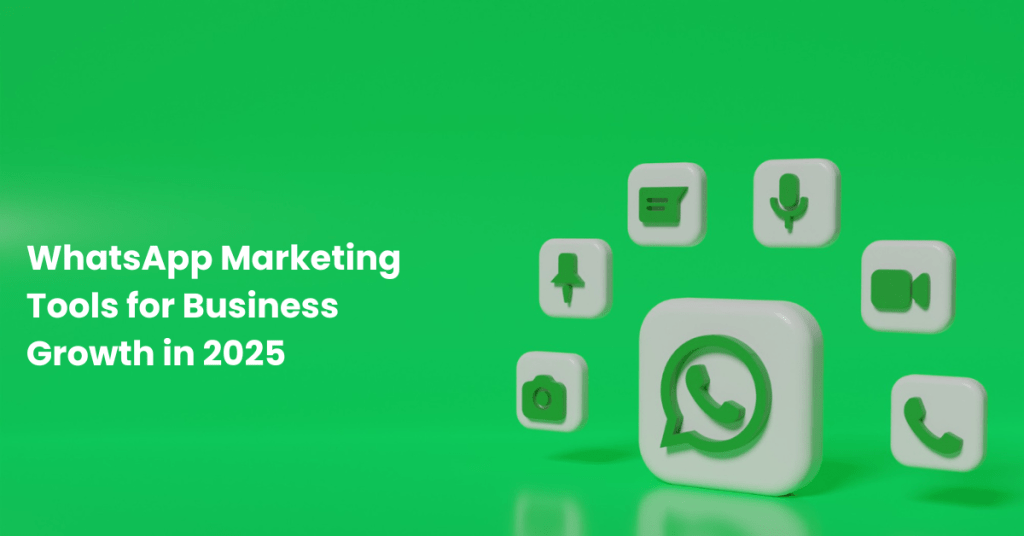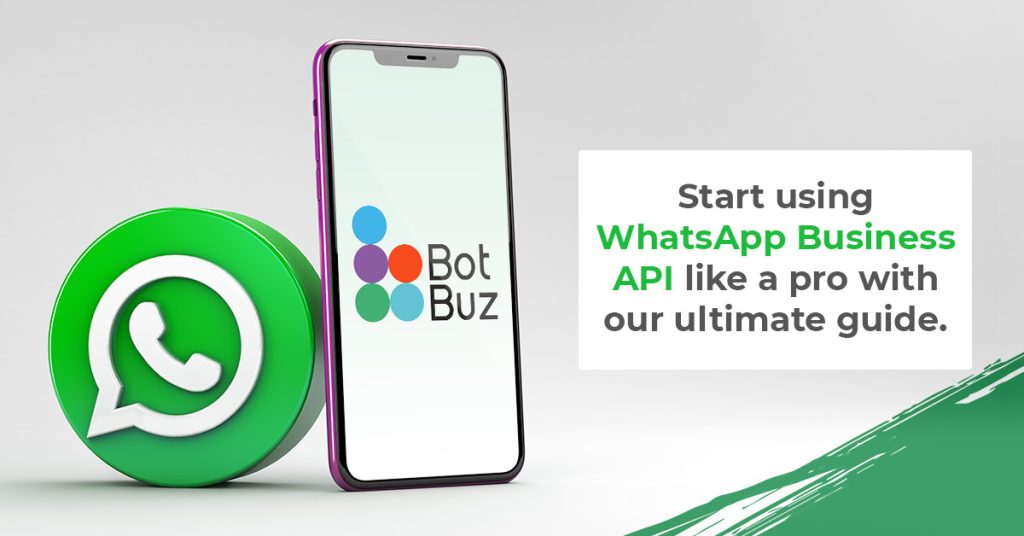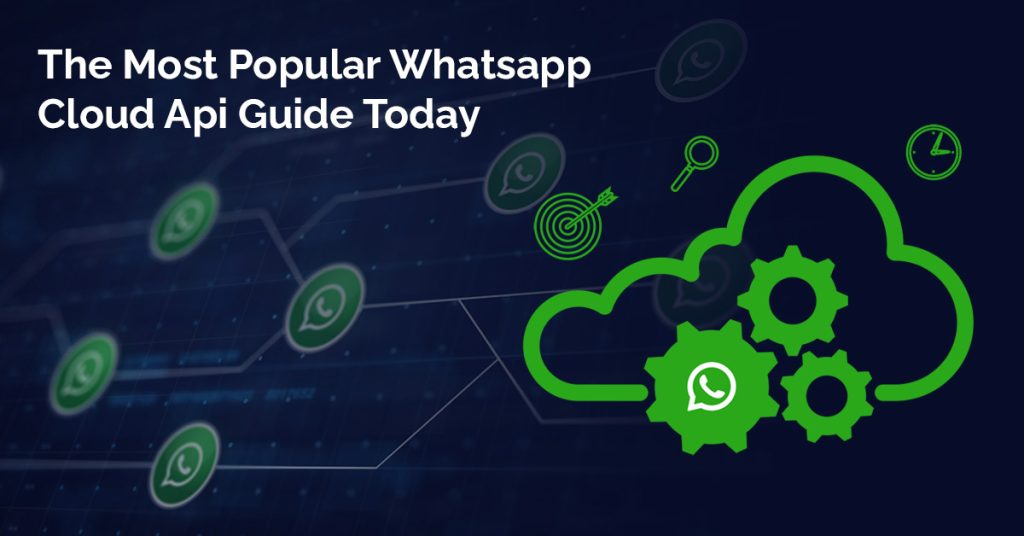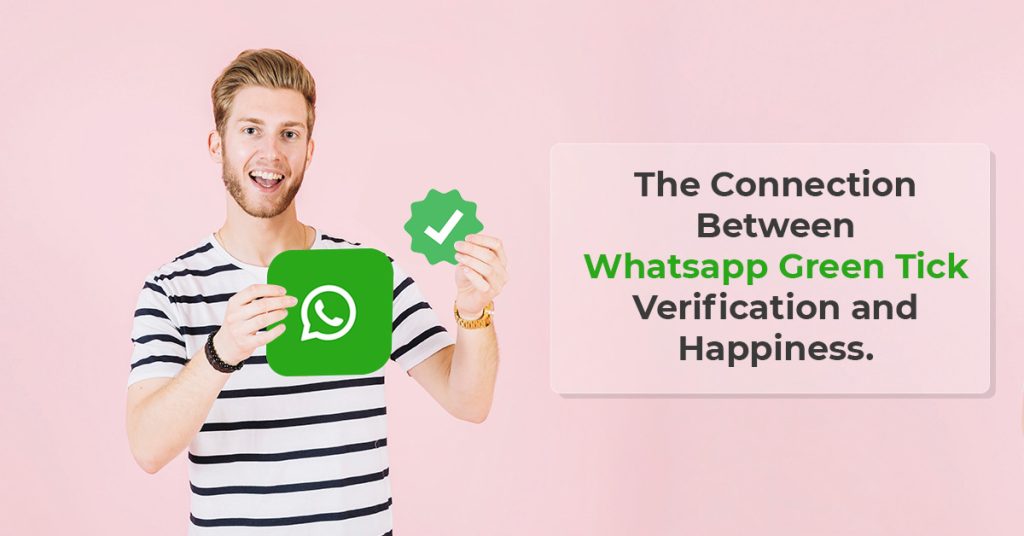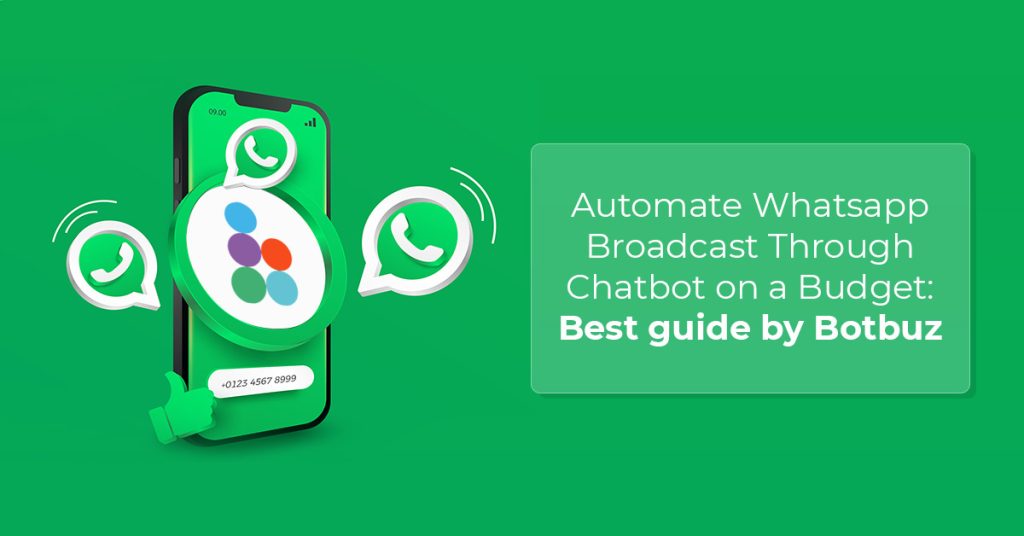- WhatsApp as a Powerful Business Communication and Marketing Channel :
- Why Use WhatsApp Marketing Tools?
- WhatsApp Marketing Tools to Revolutionize Your Strategy :
- Advanced WhatsApp Marketing Options :
- How to Choose the Right WhatsApp Marketing Tool :
- Using Botbuz : The Best WhatsApp Marketing Tool
- FAQS :
WhatsApp as a Powerful Business Communication and Marketing Channel :
WhatsApp has become an indispensable business communication and marketing channel. It is due to its massive user base and high engagement rates.
Businesses need specialized marketing tools (like the API) to move beyond basic chat. These tools provide essential automation. Tools like chatbots for bulk messaging, organization for shared inbox, CRM features and analytics to scale efforts and maintain compliance.
For small businesses and startups, free tools (like the WhatsApp Business App) are vital. They offer a no-cost entry point with professional features. It includes profile, catalog, quick replies that allow new enterprises to establish credibility & test strategies. Also it manages their initial customer interactions.
Why Use WhatsApp Marketing Tools?
WhatsApp marketing tools are essential. It is because they allow businesses to achieve direct, personalized engagement with customers on a widely used platform. These tools provide the necessary automation and scalability. It includes chatbots and bulk messaging to efficiently manage high volumes of customer interactions. This streamlined approach makes communication highly cost-effective. Thus, helping the business build stronger, long-lasting customer relationships through immediate & relevant interactions.
Key Features to Look for in a WhatsApp Marketing Tool :
The tool must manage Bulk Messaging and Campaigns. It allows the company to send high volumes of pre-approved, scheduled messages to a wide audience efficiently. Also it needs strong Chat Automation & Chatbot Integration to provide instant, 24/7 customer service and handle routine inquiries without human intervention.
It ensures relevance. The platform must feature Personalization and Segmentation. It involves grouping customers & inserting specific data like names or past orders into messages. Also a critical feature is Analytics and Performance Tracking. It offers real-time data on message delivery, open rates, and conversions. Thus, measuring campaign success. Finally, the tool must have robust CRM Integration to sync all customer interaction data. It creates a unified view for sales and support teams.

WhatsApp Marketing Tools to Revolutionize Your Strategy :
The list outlines various free features and tools available within the WhatsApp ecosystem. Businesses can leverage to enhance their marketing and customer engagement strategies.
WhatsApp QR Codes: This feature simplifies the process for new customers. It helps to initiate a conversation with a business. A company can generate a QR code and place it on physical materials or digital assets. It allows users to start a chat instantly by simply scanning the code.
WhatsApp Links: These are shareable URLs that, when clicked, automatically open a chat window with the business. A company can strategically deploy these links in emails, on their website, or across advertising materials to drive direct, immediate customer conversations.
WhatsApp Chat Widget: This tool is designed for website integration. It appears as a clickable button on a business’s webpage. Its purpose is to reduce the effort required by a customer to ask a question. Thus, offering an instant communication path for inquiries.
WhatsApp Channels: This feature allows a business to share one-way communications. It includes general updates, company news, and promotional content with a large audience. It is a broadcast method intended to engage followers without sending messages directly into their personal chat feeds.
WhatsApp Communities: A business can use this feature to organize and manage several related customer groups under a single, larger structure. This allows a company to build and administer niche-specific communities efficiently.
WhatsApp Business Profile: This is the foundational tool for establishing a professional brand presence on the platform. A business uses it to display essential contact information. It includes the company address, email, and defined operating hours.
Broadcast Lists: This function enables a business to send the same message to multiple contacts simultaneously. It is highly effective for distributing non-personalized announcements, general updates, or standardized offers to segmented groups of customers.
Automated Messaging: This tool provides basic automation by allowing a business to set up pre-written responses. These include polite welcome messages for first-time contacts and out-of-office replies. It helps to manage customer expectations regarding response times.
Labels: Businesses utilize labels as an organizational feature to categorize and tag conversations. This allows a company to quickly sort chats by status. It includes active orders, new leads, or pending support cases. It is helpful for easier tracking and follow-up.
Catalogs: This feature transforms the WhatsApp profile into a digital storefront. A business can showcase multiple products with details and prices directly within the app. Thus, enabling customers to browse & select items without navigating to an external website.
WhatsApp Payments: This capability allows for the processing of financial transactions entirely within the app. By offering seamless and secure payment options, a company can build trust with its customers and finalize sales directly.
Cart: This tool works in conjunction with the Catalog. It lets customers select and accumulate multiple products before sending their order to the business. Also it simplifies the end-to-end buying process. Thus, making it easier for customers to purchase more items.
Advanced WhatsApp Marketing Options :
Chatbots: Automate Customer Interactions, FAQs, and Lead Generation: This capability involves implementing intelligent, pre-programmed robotic conversational systems. A company uses these bots to automatically handle a vast volume of customer service inquiries. Thus, providing instant answers to frequently asked questions (FAQs), and efficiently managing the initial stages of lead qualification without requiring human agents.
Analytics and Insights: Track Campaign Effectiveness and User Engagement: Businesses use this feature to access comprehensive performance data. The system provides detailed metrics and reports. It allows the company to measure the success of their campaigns, assess user engagement levels, and gather insights necessary for optimizing future marketing strategies.
Unlimited Agents: Collaborate with Team Members on One WhatsApp Number: This function is crucial for scaling operations. It allows numerous customer service or sales team members to simultaneously access and manage conversations flowing into a single, official WhatsApp business number. This shared inbox approach promotes seamless teamwork and consistent customer handling.
Broadcast WhatsApp Messages to Unlimited Users: Scale Outreach with Automation Tools: Unlike the basic feature, this advanced option allows a company to send massive volumes of targeted messages beyond the standard limit. By utilizing automation tools, a business can achieve significant marketing reach and scale their outreach efforts efficiently.
Automate Notifications: Order Confirmations, Shipping Updates, Reminders: This involves setting up automated transactional messaging workflows. The company uses this to reliably and instantly notify customers about critical, time-sensitive events, such as confirming a purchase, providing real-time shipping tracking details, or sending helpful appointment reminders.
How to Choose the Right WhatsApp Marketing Tool :
The process begins with the company defining its business size and goals. The small shop’s simple communication needs differ significantly from a larger enterprise’s need for comprehensive sales support. Next, the business must assess the ease of use versus technical requirements of the tool. Thus, ensuring it can be operated efficiently by the team without demanding specialized technical knowledge.
A forward-thinking company must also evaluate scalability for future growth. It confirms that the platform will be able to handle increased message volume and contact lists as the business expands. Finally, a business must strictly look for security and compliance with all WhatsApp policies. Adherence to these rules is non-negotiable for safeguarding customer data. Thus, maintaining trust, and preventing the serious risk of the account being banned.
Using Botbuz : The Best WhatsApp Marketing Tool
Botbuz is a comprehensive WhatsApp marketing platform. It is built on the official WhatsApp Business API.
The platform’s core functions include :
- A no-code chatbot builder for automating customer service and lead qualification.
- A shared team inbox to enable multiple agents to manage customer chats collaboratively.
- E-commerce integration to facilitate direct sales & process payments. It sends automated transactional messages like order updates.
- Advanced segmentation and analytics for data-driven, targeted campaigns.
Botbuz is an all-in-one solution. It helps businesses efficiently scale their customer engagement & maintain compliance with WhatsApp’s rules.
Conclusion :
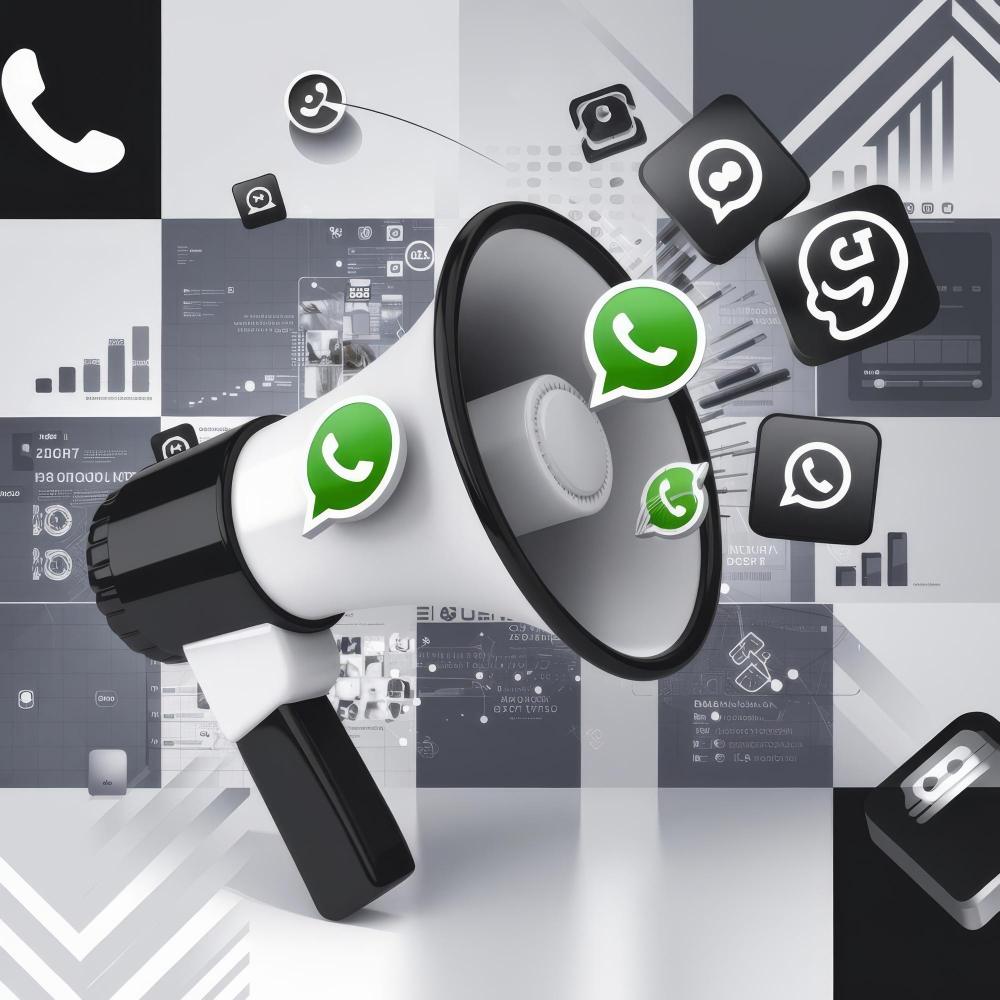
The rise of WhatsApp as a primary communication channel has made WhatsApp Marketing Tools indispensable for any business aiming to boost its sales, customer engagement, and overall efficiency. The future of commerce is undoubtedly conversational. Using this highly personal, high-engagement platform is no longer optional—it’s a critical component of a modern marketing strategy.
Among the best-in-class solutions, Botbuz Chatbot stands out as a powerful and comprehensive tool to achieve these goals. By offering a no-code, drag-and-drop builder, Botbuz democratizes sophisticated conversational marketing. Thus, making it accessible even to small businesses.
In conclusion, for businesses seeking to truly boost their efficiency and revenue in the conversational era, adopting a sophisticated WhatsApp marketing solution is the clear path forward. Botbuz Chatbot provides the ideal combination of an easy-to-use interface, cutting-edge AI, and deep e-commerce features. It positions it as the best tool to transform customer interactions into profitable, scaled relationships on the world’s most engaging messaging platform.
FAQS :
- What is the fundamental difference between the free WhatsApp Business App and the WhatsApp Business API Tool?
The core difference is scale and functionality: the WhatsApp Business App is a free mobile application for very small businesses, limiting use to one user and offering only basic features like limited broadcast lists and simple auto-replies. In contrast, the WhatsApp Business API Tool is a paid, scalable solution for medium and large enterprises. It unlocks essential advanced features such as a shared inbox for multiple agents, integration with CRM/e-commerce systems, advanced chatbot automation, and the ability to send bulk messages to unlimited contacts using approved templates.
- Why must marketing messages use a “Message Template,” and what is it?
A Message Template is a standardized, pre-approved message format that a business must use to initiate any conversation with a customer outside of the 24-hour service window. Templates are necessary because WhatsApp uses them as a strict mechanism to prevent spam and ensure the channel remains high-quality. All promotional content, like sales announcements or newsletters, must be submitted, approved by Meta, and categorized as a marketing template before it can be sent.
- What is the “24-Hour Window” rule, and how does it affect pricing?
The 24-Hour Window is a critical rule that starts when a customer sends a message to the business. During this period, the business can reply with any free-form message for customer service purposes. It is considered a user-initiated conversation, which is typically free or charged at a lower rate. Once the 24 hours expire, the window closes, and the business can only re-initiate contact using a paid, pre-approved Message Template. Thus, classifying it as a business-initiated conversation, which is charged at a higher rate.
- Can I use a WhatsApp Marketing Tool to automatically recover abandoned shopping carts?
Yes, automated abandoned cart recovery is one of the most effective use cases for a WhatsApp marketing tool, thanks to its high open rates. By integrating the tool with your e-commerce platform, you can set up an automated workflow to send a friendly, personalized Message Template—often including a link back to the cart or a small discount—to a customer a set amount of time after they leave items in their cart, significantly boosting conversion rates.
- What are the key features I should prioritize when choosing a WhatsApp Marketing Tool?
A robust WhatsApp marketing tool must offer features designed for team collaboration and scale. Top priorities should include a Shared Team Inbox for multi-agent support; a No-Code Chatbot Builder for automating common queries and lead qualification; CRM/e-commerce Integration for personalized messaging; and comprehensive Analytics to track essential metrics like delivery rates, response times, and conversion success.
- Is it legal to send bulk promotional messages, and what is the main compliance requirement?
Yes, sending bulk promotional messages is legal, but only when it is done through the official, compliant WhatsApp Business API platform. The single most important compliance requirement is obtaining explicit, opt-in consent from every customer for the WhatsApp channel specifically. Businesses that send unsolicited bulk messages (spam) using unapproved tools are in direct violation of WhatsApp’s policy and risk their phone number being permanently banned.
- How should I choose a compliant and reliable WhatsApp API provider for my business?
Choosing a reliable provider requires confirming their legitimacy and suitability for your scale. You should only select a vendor that is an Officially Approved Meta Business Solution Provider (BSP) to ensure compliance and avoid service interruptions. Additionally, evaluate the provider based on the platform’s ease of use, its ability to seamlessly integrate with your existing technology stack (like your CRM), and their message pricing structure, which is set by WhatsApp but managed through the vendor.
